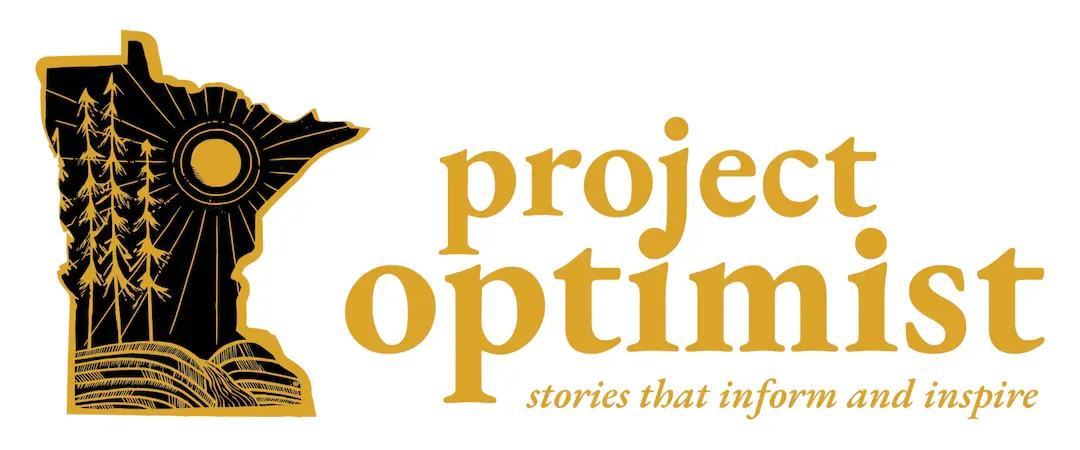Community Voices ⎸ How nature invites us home
"I didn’t know why, but I felt alive in wild places," writes Alex Blondeau.
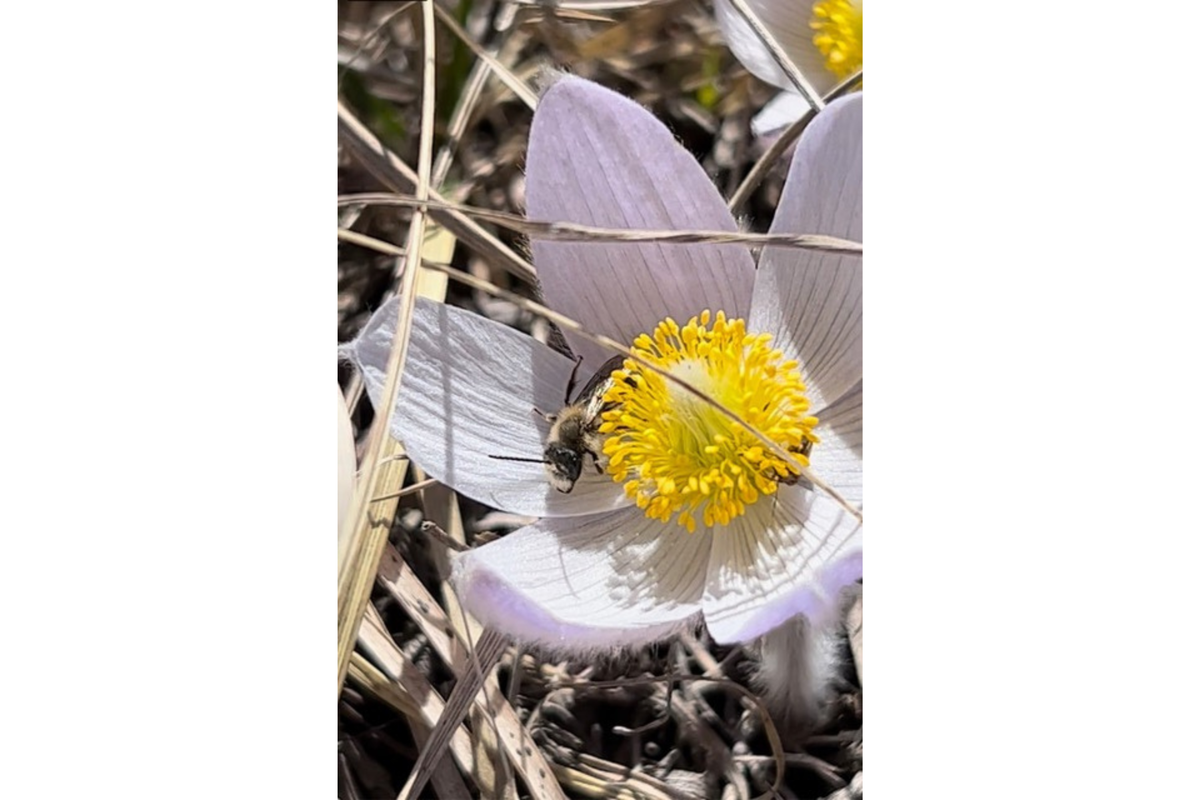
FERGUS FALLS, Minn. — My hands froze and fell from the joysticks at the words.
I reached up and turned off the skid steer I was driving, and, with tears filling my eyes, wept. From the highway, some 10 miles west of Rothsay, Minn., you would have seen a machine diligently snipping invasive trees far out in a wildlife production area suddenly come to a halt. The steady hum of the engine would have gone silent, and the rush of wind through tall grass punctuated by the calls of migrating waterfowl would have returned to the land.
I wasn’t falling apart. I was coming home.
I was raised in a small town among the hills that form the edges of what was once Glacial Lake Agassiz. I was an only child, and my father was an avid outdoorsman. He brought me along on countless hunting trips. These trips took place within the natural areas that had been protected from agriculture as a refuge for native plants and animals to thrive. I never took to the hunting aspect, but the sights and the sounds of these landscapes, not cultivated for human use, sunk deep into my bones.
As I grew up, I largely lost touch with these places where I had spent so much time with my father. I longed for places that seemed to be obviously wilderness. The land I was raised in seemed boring by comparison. Farm fields. Soybeans. Corn.
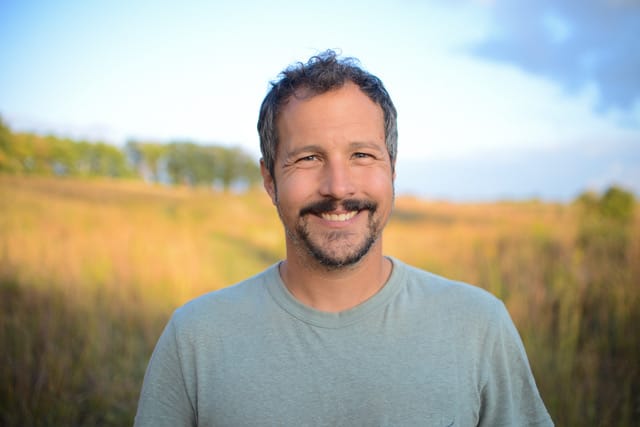
I didn’t know why, but I felt alive in wild places. There was something about waterfalls not channeled by concrete, flowers not planted in a row, and animals not kept on a leash that made being there unpredictable, exciting, and beautiful. I didn’t overthink it. I simply knew that these places were where it was at for me. In the city I pursued my education, worked at my job, and every chance I got, I left.
Along the way I picked up a couple advanced degrees in theology. I learned about people that didn’t look “at” or pray “to” God as something “out there,” but instead related to the divine as a reality that they felt present in all things, including themselves. They felt that what was most real about themselves was actually the same thing as this divine presence. So in a way, they could feel not only the divine, but themselves, as present in everything, in each person they met, in every blade of grass, in the colors of the sunset.
I learned about how the basic thrust of European and American culture lost touch with this way of thinking, and instead had formed us to think in pretty much the the exact opposite way. Rather than encouraging a sense of intimacy and connection, Western culture began to emphasize separation. We are separate —separate from each other, separate from the natural world, and separate from God.
Around this time I was back in my hometown for the weekend where a chance encounter with a flower would change the course of my life. It was early spring, and I found a pasque flower on a rocky hillside. She would begin to tell me the story of small fragments of prairie that had never been turned into farm fields. They contained countless others like her.
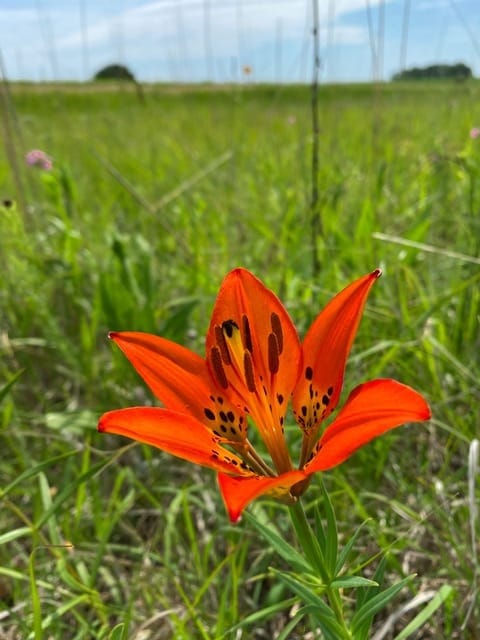
For me, this was a revelation! I began to set out on little adventures to find and visit these fragments. I was repeatedly stunned by their beauty, how they changed throughout the seasons, and by the diversity they contained. It soon dawned on me that what I had always been looking for when I left for the wilderness could be still be found right where I lived! I had found a new love, and with that love, grief. There were so few of these places left. The beauty of these fragments once covered the land as far as the eye could see and beyond, but now they were relegated to small islands in a sea of agriculture. Once without boundary, they were now surrounded by power lines and highways, and from within, invasive species were taking over what was left.
I felt helpless. It seemed cruel to be born into a time where I was to fall in love with the natural world of my home just as her eyes were closing. I wanted to do something. So I began growing flowers. First I tried growing the pasque flower. Having some success, I started to experiment with other tricky species. I seemed to have a knack for growing many native plants the people often struggled with. I began toying with the idea of starting a native plant nursery, but I knew I had so much left to learn.
I went to work for a nonprofit that focused on prairie restoration in the summer of 2022. I was there to learn everything I could, but the bread and butter of my work was invasive tree removal. I spent many of my days in a skid steer motoring around wildlife preserves attempting to beat back the tide of trees that was washing over our remaining prairie fragments. The work makes a difference, but it’s hard not to let a sense of futility creep in.
It’s best to focus on what’s in front of you when overwhelm tempts your mind. Podcasts help, too. It was the comedian Pete Holmes who finally did it to me. He was describing his own experiences of union, much like the people I had read about in grad school. Then he did something that surprised me. He began riffing on the story of the Prodigal Son. He said that it’s not that the son went off and did a bunch of evil things necessarily. The story says he squandered his inheritance, as if he took what was given to him and just sort of thoughtlessly did his thing … as we do, most of us, with our whole life.
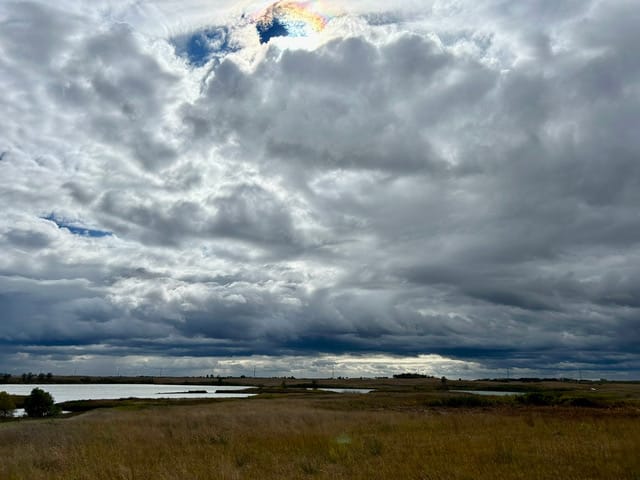
The son, as you know, burned through his resources and begins to panic, much like I, trying to beat back the invading trees, felt an underlying sense of panic, frustration, and bitterness. Is the world itself angry for what we have done, for how we have squandered what has been given?
That’s when Holmes delivered the clincher. Your father — the depth of all things — loves you. You can go home … You are home! That’s when I dropped the joysticks in the skid steer. That’s when I cried. That’s when I felt the world I loved, the world that I felt I was part of destroying, embrace me, my ignorance, my apathy, even my seemingly futile efforts to make things right. The whole thing.
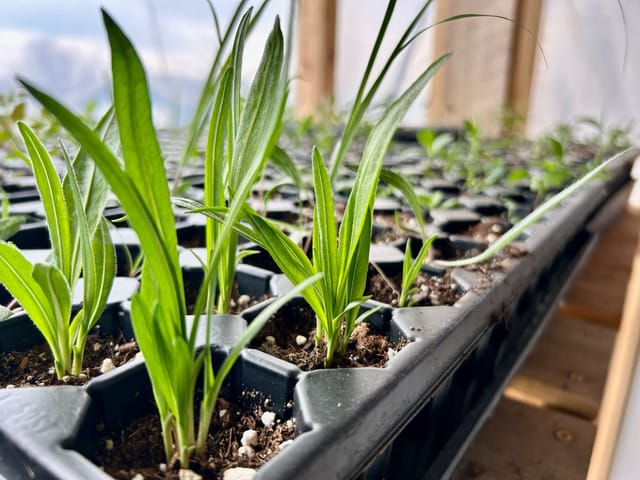
I have continued my work. I have started my nursery. But I no longer feel helpless and alone in the middle of a mess that I and my culture have made. Though the mess and the grief is real, I feel as though I am moving within something that can only be called an embrace of love. I am no longer at war or on trial. I am, here among this community of life, home.
Alex Blondeau is the owner of Windflower Natives in Fergus Falls, Minn.
This essay was edited by Jen Zettel-Vandenhouten. It is part of Project Optimist's Biophilia series about nature and design, and is supported by a grant from Arts Midwest. Learn more here.
